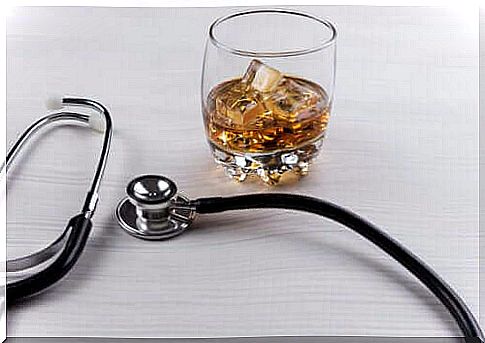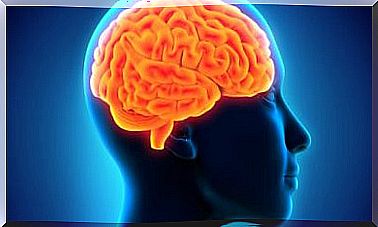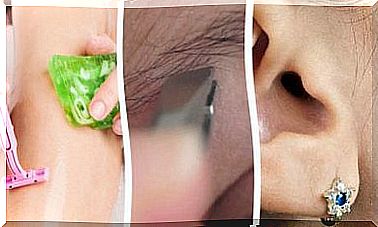The Effects Of Alcohol On The Heart
The effects of alcohol on the heart can be positive, provided it is ingested in a controlled manner and with adequate frequency. They can also be very harmful, even fatal, if alcohol is ingested in large amounts under certain circumstances.

Today there is some confusion about the effects of alcohol on the heart. There is some information to suggest that drinking wine or beer, in moderation, contributes to cardiovascular health. At the same time, there are studies that talk about the harmful effects of these types of drinks on the heart.
In reality, both of these facts are true. The effects of alcohol on the heart are very varied and depend on the state of health of each person, the amounts and frequencies of consumption, as well as the type consumed.
However, one thing is not disputed: the effects of alcohol on the heart and other organs are very negative, and even devastating, when consumed in large quantities. It is also a psychoactive substance which can lead to dependence and considerably deteriorate the quality of life.
Myths and truths about the effects of alcohol on the heart

There is evidence that the effects of alcohol on the heart can be positive. Wine, for example, is rich in antioxidants (flavonoids, tannins, anthocyanins and resveratrol). These substances help prevent the formation of plaques in the arteries (atherosclerosis). They also promote the production of “good cholesterol”.
It has been said that drinking a glass of wine a day can have these positive effects. However, a study published in the Journal of the American College of Cardiology points out that while these positive effects are real, it is also true that even moderate consumption of these drinks increases the risk of causing irregular heartbeats.
Another study, led by Professor Peter Kistler of the Baker IDI Heart and Diabetes Institute and Alfred Hospital in Melbourne, Australia, says the same. He says that while moderate alcohol consumption can help keep the body’s “pipes” clear, it can affect the electrical parts of the heart, especially the rhythm of the heartbeat.
Drink moderately and drink too much
There is a lot of talk about the importance of moderate drinking of alcoholic beverages, but it is not clear what is moderate and what is excessive. The first thing to take into account is the state of health of each person. A person with diabetes or hypertension, for example, should avoid them entirely, even in moderate amounts.
On the other hand, frequency is also important. It is much more harmful to drink alcohol in large quantities, even occasionally. Drinking more than five drinks for men or four for women increases the risk of stroke and sudden death.
The dietary guidelines of the US Department of Health specify that moderate consumption is a maximum of one drink per day for women and two for men. However, several experts claim that it is best not to drink daily, but to avoid alcohol two or three days a week.
Alcohol and atrial fibrillation

One of the risks of consuming alcohol, even in moderate amounts, is the fact that this substance contributes to the irregularity of the heartbeat, as we have already noted. Alcohol can damage cells and cause fibrous tissue to form in the heart, which affects the heartbeat.
In addition, alcohol can affect the way cells in the heart contract. Over time, this can lead to an irregular heartbeat. It also affects the autonomic nervous system, which controls, among other things, the rate of the heartbeat.
This condition, called atrial fibrillation, increases the risk of serious problems such as heart failure or stroke. It occurs in some people who drink moderately, often, and in 60% of people after excessive consumption.
Other effects
In some people, excessive alcohol consumption can weaken the heart muscle and cause a condition called dilated cardiomyopathy. In this state, the heart expands and decreases its pumping force, which causes symptoms of heart failure.
Alcohol also contributes to obesity, which increases the risk of heart problems. Frequent and heavy alcohol consumption also doubles the risk of hypertension. The combination of alcohol and psychotropic drugs can be fatal.









